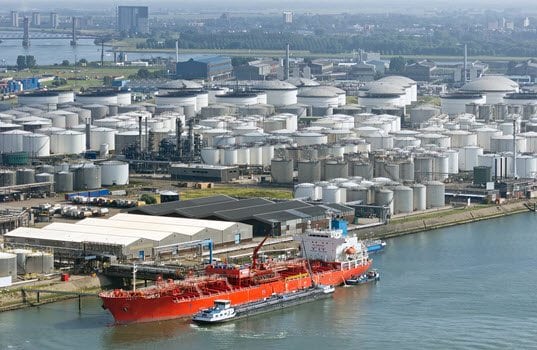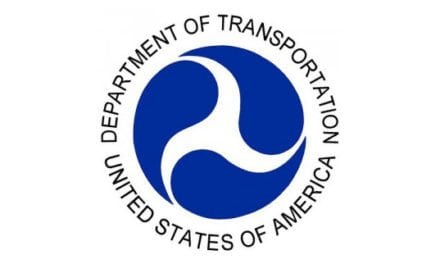[Editor’s Note: We are pleased to publish the inaugural column from FMN Editorial Board Member Joe Petrowski, on what will soon become a front burner issue in U.S. energy policy.]
This year Congress and the administration will be debating whether we should continue to restrict U.S. crude oil exports as has been the law for 60 years, as well as restrict the export of other energy such as LNG and refined products. This has come to the forefront because our domestic energy production including natural gas, crude oil and associated hydrocarbon liquids is at a 30-year high, and at the same time U.S. domestic energy usage has flat lined because of efficiency gains, mandates and recession. World energy demand is growing faster and because two of our closest markets in Venezuela and Mexico are having major production problems, not surprisingly because of their state run oil companies and hostility to foreign capital, we are exporting record amounts of U.S. hydrocarbons. A declining dollar and falling North Sea production compounds the need for U.S. origin supply.
Simply stated, we should not restrict exports of U.S. crude, natural gas or products and any argument to the contrary hurts U.S. national interests, and in the long run our domestic energy industry including independent marketers. The reasons are numerous, and I outline the most compelling in the eight points that follow:
- We have a current trade deficit of $539 billion; every million barrel equivalent per day of hydrocarbon exports will cut that by $40 billion. US incremental energy production is estimated to have a 7 million barrel per day incremental upside at current prices and technology which if unimpeded will eliminate that deficit or at least take the net deficit from energy to zero (we currently import $313 billion in hydrocarbons). This is the rational answer to what does it mean to be “energy independent.” There are countless commodities that we both export and import within the same year. For example, while we produce more wheat than we consume — and hence are an exporter–we are not “independent” from the world wheat market. A serious drought as we are currently having in Australia will affect U.S. wheat prices. This is the price of free trade and globalization. Being energy independent does not mean we have eliminated price volatility, or the need to import at some time for some grade at some port of destination. When prices do rise because of geopolitical events it simply means that there will be winners and losers within the U.S., and on a net basis the country will not be adversely affected.
- If the U.S. increases hydrocarbon production we will not be immune to a major event in the Mideast; prices would rise but with U.S. and Canadian producers the price response would be muted. And, most importantly, the giant sucking sound of money being removed from our economy, as in 1973 and 2008, leading to a serious recession would not occur. Yes, income would shift from net shorts (consumers) to net longs (producers), but that is how markets work. Texas, North Dakota, Louisiana and Pennsylvania would be winners—New York and California losers.
- We simultaneously export and import because of locational differentials in price and either a lack of capacity (pipelines) to move stuff from where it is to where it isn’t or regulatory impediments (Jones Act) restricting U.S. port-to- U.S. port movements. For example we export crude out of the Gulf Coast and import crude into the East Coast. To move that crude to the East Coast would cost $100 million. All costs eventually get born by consumers.
- Any restriction on the free flow of a commodity suppresses production, which seems to be the intent of those on the left that want a prohibition on exports to continue. Those on the right who take satisfaction in restricting exports as a comeuppance for past OPEC sins are hurting the U.S. long-range interests. We need a vigorous domestic energy industry. Restrictions on exports are a form of price controls (using export licenses rather than price as the calibration mechanism). These controls or restrictions always lead to less capital investment in exploration and production and less supply. Independent marketers should encourage measures that foster increased investment in production and supply.
- All of our crude exports by definition go to foreign refineries. It is in our security interest to keep these refineries viable. As we continue to lose domestic refining capacity, and concentrate what capacity we have in a Gulf Coast zone vulnerable to weather and terrorist activity, we will need foreign refineries to turn our crude into the products we consume.
- Commodities always flow to the highest price market—even illegal commodities. The last time we had a petroleum trade system designed by the government and a legion of “rent seekers” we created Marc Rich and a cadre of “new” oil “old” oil manipulators who added no value, but did add volatility.
- The US rightfully has always been a proponent of free trade. It should continue to do so in the matter of hydrocarbons. That is in the nation’s interest. While I would personally prefer to export value-added and high-value products, a country with a half-trillion deficit that has not manufactured a television or radio in 40 years does not have the luxury to restrict exports of any kind.
- Exporting oil and natural gas is environmentally positive since these Btu’s are replacing coal and dirtier fuels, in most cases.
Any restrictions on US energy exports will hurt US interests, long term supply and ultimately the interests of independent marketers.
 Joe Petrowski has had a long career in international commodity trading, energy and retail management and public policy development. In 2005, he was named President and CEO of Gulf Oil LP and elected to the Gulf Oil LP Board of Directors. In October of 2008 he was named CEO of the now combined Gulf Oil and Cumberland Farms whose annual revenues exceed $11 billion and that now operates in 27 states. In September 2013, Petrowski stepped down as CEO of The Cumberland Gulf Group. He is now managing director of Mercantor Partners, a private equity firm investing in convenience and energy distribution.
Joe Petrowski has had a long career in international commodity trading, energy and retail management and public policy development. In 2005, he was named President and CEO of Gulf Oil LP and elected to the Gulf Oil LP Board of Directors. In October of 2008 he was named CEO of the now combined Gulf Oil and Cumberland Farms whose annual revenues exceed $11 billion and that now operates in 27 states. In September 2013, Petrowski stepped down as CEO of The Cumberland Gulf Group. He is now managing director of Mercantor Partners, a private equity firm investing in convenience and energy distribution.









